Academics Raise Alarm Over Iran's Global Drone Research Partners
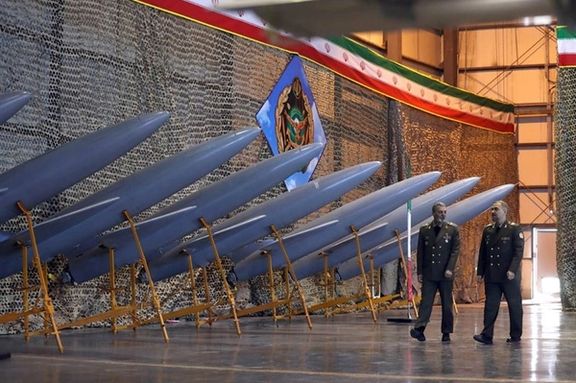
Collaborative drone research involving academics from the US, UK, and Australia with an Iranian university under international financial sanctions has stirred concerns.

Collaborative drone research involving academics from the US, UK, and Australia with an Iranian university under international financial sanctions has stirred concerns.
According to findings by The Guardian, security experts have pointed out the direct military implications of the research, citing its relevance to drone warfare scenarios, especially in conflict zones like Ukraine and the Middle East.
Conor Healy, Director of Government Research at IPVM, emphasized the significance, stating, "There are direct implications of the technology presented in this paper for military use."
Robert Czulda, a professor in international and political studies at the University of Łódź, Poland, echoed concerns, labeling the research as "potentially very dangerous." He warned against engaging in such projects, emphasizing the ease with which technologies related to communication and signal repeating could be repurposed for military applications.
The study, published by the Institute of Electrical and Electronics Engineers in 2023, explored the use of drones in wireless networks and as communication hubs. It involved collaboration between researchers from the University of Southampton, the University of New South Wales (UNSW) in Sydney, the University of Houston, and Sharif University of Technology in Tehran.
Notably, Sharif University, known for its ties to the Iranian military, is subject to financial sanctions by the EU and UK, with a senior official from the institution sanctioned by the US. Reports suggest that Iran's rapid development in UAV technology was facilitated by research support from Sharif University.
In response, governments took action. In June 2023, the UK probed collaborations with Iran on UAV research. Similarly, Canada tightened research funding rules. The University of Houston denied affiliation, citing export laws and UNSW denied direct funding but confirmed rigorous assessments.

A recent mandate requiring advertising licenses for social media accounts boasting over 5,000 followers in Iran has raised concerns over government control and taxation motives.
Abbas Mohammadian, the Islamic guidance ministry’s media and advertisement deputy defended the requirement as a measure to safeguard legal rights and ensure advertising compliance with regulations. However, skepticism persists regarding its broader implications, including identification of influencers and taxation of their earnings.
The regulation, applicable to both foreign and domestic social media platforms, has sparked criticism, especially in light of Iran blocking most major social media platforms, such as X, Facebook and Youtube.
“What license? All [foreign] social media applications are blocked … What are you going to do if they don’t [acquire one]?” a tweet asked the authorities.
Many suspect that besides controlling content of advertisements and ensuring they do not break the rules of Sharia such as the rules for hijab, the requirement is meant to be used for identifying bloggers and influencers as well as their content creators, photographers, models, and admins. Some of these individuals have high earnings for which they may not be paying taxes, because they are not officially employed.
“Who has given you the right to tax [Instagram] bloggers and require a license for their activities when you are the ones that have blocked Instagram,” another tweet told authorities.
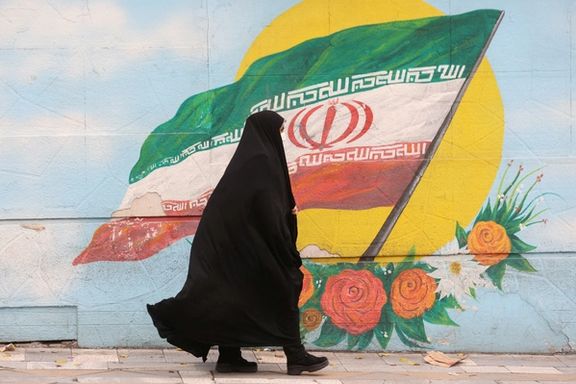
All major social networks including Instagram, Facebook, X (former Twitter), YouTube, Telegram and WhatsApp are blocked in Iran, but controls are readily sidestepped by VPNs (virtual private networks) and anti-filtering software. Nearly every Iranian with a smartphone has installed anti-filtering software that allows access to filtered applications and websites.
Instagram is the second most popular social platform in Iran after Telegram with over forty million users. Both platforms are used by millions of small and home-based businesses for marketing.
These small businesses, particularly those run from homes by women or small farms in rural areas, heavily rely on Instagram for advertising their products -- anything from handwoven rugs to herbs and vegetables grown in their rural gardens and duck eggs. They also use WhatsApp, through VPN, for communication with potential customers. Many of these small businesses that exponentially grew after the Covid pandemic have thousands of followers now.
A survey conducted by the state-run Iranian Students Polling Agency (ISPA) in 2021 found that 73.6 percent of Iranians over the age of 18 use social media, including WhatsApp (64.1), Instagram (45.3), and Telegram (36.3). Only 4.8 percent reported that they use domestically developed platforms.
The ban on Instagram, the only social platform not blocked by authorities until then, was announced on September 21, 2022, a few days after anti-government protests sparked by the death of 22-year-old Mahsa Amini in the custody of morality police engulfed the country.
Despite restrictions for ordinary citizens, Iran’s Supreme Leader Ali Khamenei had multiple accounts on Instagram and Twitter until last week when Meta, the owner of Instagram and Facebook, removed his accounts on these platforms. Meta said this was based on its policy of denying its platforms to organizations and individuals that “proclaim a violent mission or are engaged in violence”.
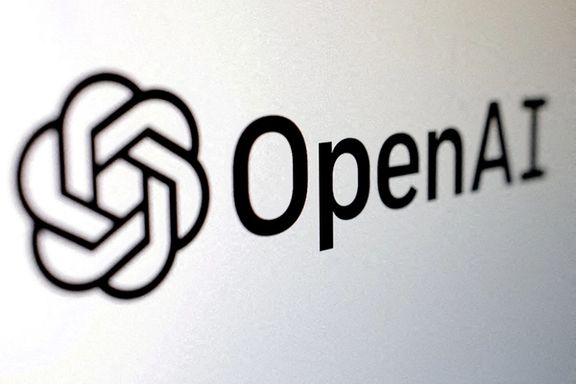
State-backed hackers from Russia, China, and Iran have been leveraging tools developed by Microsoft-backed OpenAI to enhance their cyber espionage capabilities.
Microsoft disclosed on Wednesday that hacking groups affiliated with entities such as Russian military intelligence, Iran's Revolutionary Guard, and Chinese and North Korean governments had been utilizing large language models, a form of artificial intelligence, to refine their hacking techniques. The models utilize extensive text data to generate responses that closely resemble human language.
In response to the findings, Microsoft has imposed a blanket ban on state-backed hacking groups from accessing its AI products, regardless of any legal or terms of service violations. According to Tom Burt, Microsoft's Vice President for Customer Security, the company aims to prevent threat actors from exploiting this technology for malicious purposes.
While Russian, North Korean, and Iranian diplomatic officials have not yet commented on the allegations, China's US embassy spokesperson Liu Pengyu rejected the accusations.
Microsoft further detailed various ways in which such hacking groups utilized large language models, including research on military technologies, spear-phishing campaigns, and crafting convincing emails to deceive targets.
Earlier this year, Microsoft warned that Russia, Iran, and China are likely to plan to influence the upcoming elections in the United States and other countries in 2024. Microsoft's Threat Analysis Center also confirmed that Iran has intensified its cyberattacks and influence operations since 2020.
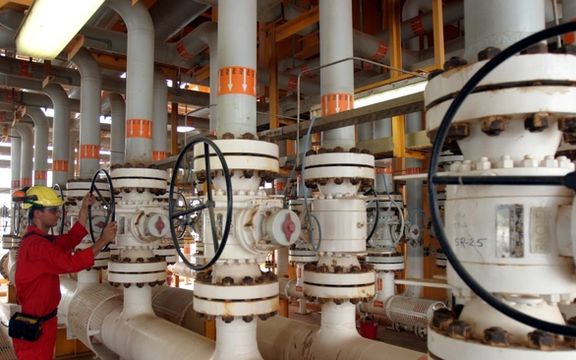
Iran International has obtained information about two oil smugglers, helping to circumvent US sanctions, affiliated with top officials close to Iran's Supreme Leader Ali Khamenei.
The two, Edman Nafrieh (Adman Nafariyeh) and Ali Bayandarian, collaborated with Parsargad Bank to sell millions of dollars' worth of Iranian oil illegally, a common practice for the Islamic Republic meant to circumvent the US sanctions on its oil industry and banking sector.
The operation allegedly took place under the auspices of the Headquarters of Imam's Directive (Executive Headquarters of Imam's Order or simply Setad), a parastatal organization under direct control of the Supreme Leader. A committee known as the "Cover Committee," which includes key figures of Iran’s Supreme National Security Council purportedly issued credit lines to intermediaries for bypassing sanctions.
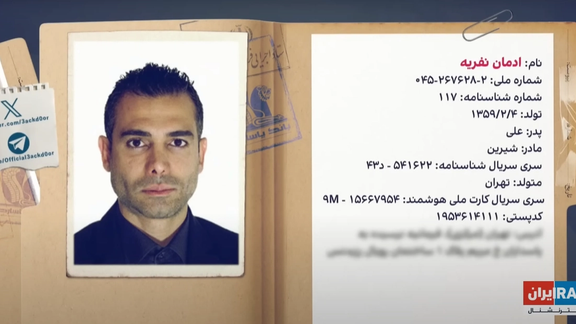
The Islamic Republic has numerous mechanisms in place through a wide range of entities and organizations to sell its oil via third parties to evade sanctions. The country has also started giving oil to state organizations, including the IRGC, as a way to boost their budgets without actually allocating any money to them. Such operations are usually carried out by a network of state bodies and businesspeople with close ties to the regime, who usually gain huge profits in the process. However, with every new administration in office, former assets become a liability and bear the brunt of the political games of the regime.
Edman Nafrieh, 43, who lives in an upmarket part of Tehran, is one of such businesspeople who were trusted by the Setad to sell Iranian oil. His real name, Arman, was changed to Adman in 2007 and later to Adrian, as he gradually whitewashed his Iranian origins. Finally in January last year, he changed his last name to Touran to complete his more Western cover image. Through a network of companies active in the field of energy in Tehran and Dubai, Nafrieh is still active in illegal sales of Iran’s oil as well as bitumen industry.
In one case in 2019, two senior figures of the cover committee – Yahya Alavi and Mohammad Mirmohammadi -- requested Parsargad Bank to issue a $500 million bank guarantee in the name of Nafrieh to sell the oil, which was under the control of the Setad. Apparently, he never paid back about $300 million of the oil sale proceeds.
He was designated by the US in November 2022 along with five other people and 17 entities in a crackdown on a sanctions evasion network that provided support to Iran’s proxy in Lebanon Hezbollah and the Islamic Revolutionary Guard Corps-Qods Force (IRGC-QF).
Ali Bayandarian, another member of the Setad’s oil smuggling network, was also sanctioned by the US in January 2020 as Washington designated four companies accused of purchasing Iranian oil and petrochemical products. Bayandarian was designated over his links to the companies.
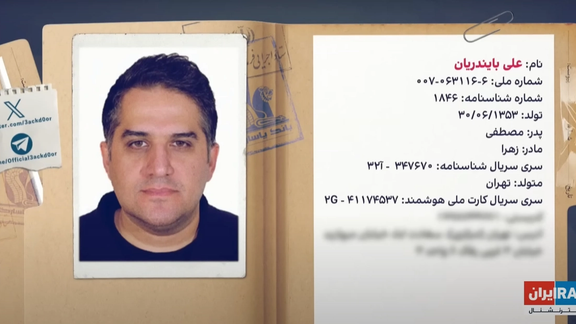
Documents leaked by a cyberattack on the Iranian parliament’s media arm on Tuesday revealed the parliament's coordination with designated Iranian entities and individuals to facilitate their trade activities and conceal their identities and connections from international regulatory bodies.
Nafrieh and Bayandarian are just small cogs in Iran’s huge network in charge of keeping the flow of oil revenues around global sanctions.
Iran’s oil exports have been increasing in recent years, from a low of less than 500,000 barrels per day after the US re-imposed sanctions on Iran in 2019 to as high as over 1,500,000, a rise that regime officials attribute to measures to bypass the punitive measures rather than an honest interaction with the world.
One of the most well-known cases was former tycoon Babak Zanjani, who now faces execution for embezzling the proceeds of oil sales totaling around $3.5 billion. Zanjani was arrested and convicted in 2013 after Hassan Rouhani was elected president, but has always maintained his innocence and that the death sentence passed was "politically motivated."
Zanjani sold Iranian oil on behalf of the NIOC during President Mahmoud Ahmadinejad's second term (2009-13) through an elaborate network of black-market dealers and money-launderers − particularly in the UAE, Turkey and Malaysia. He was subsequently sanctioned by the Council of the European Union in December 2012 and by the United States Treasury in April 2013.
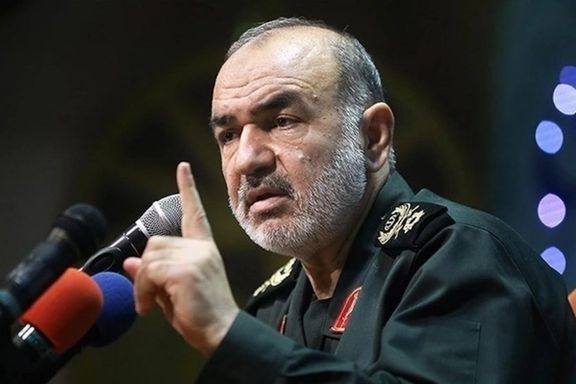
In the wake of US retaliatory attacks on Iran's proxy militias, the Commander-in-Chief of Iran's Islamic Revolutionary Guard Corps (IRGC) issued a renewed warning against the US getting into direct conflict with Tehran.
While the US has made it clear it prefers diplomatic dialogue and has strategically hit proxy sites in Yemen, Iraq and Syria, Hossein Salami spoke in fighting terms Wednesday, warning, "We have always fired the last shot and emerged victorious in the field."
President Joe Biden's stance on conflict with Iran has been consistently lenient throughout his term, particularly in light of the October 7th Hamas attack on Israel which triggered a proxy war across the region.
Iran's militias have launched over 180 attacks on US facilities and killed multiple personnel as retaliation for Biden's support for Israel's right to defend itself after the atrocities which saw 1,200 mostly civilians murdered and over 250 taken hostage. Biden has reacted with less than a dozen retaliatory strikes.
In response to a drone strike which killed three US personnel in Jordan, President Biden authorized a "multi-layered" strike on targets associated with Iran's Islamic Revolutionary Guard Corps (IRGC) in Iraq and Syria.
Joint US-UK strikes on Houthi targets have also hit key sites for the militia which has been blockading the Red Sea trade route since November and launched multiple attacks on international shipping in a bid to force Israel into a ceasefire in its war on Iran-backed Hamas in Gaza.
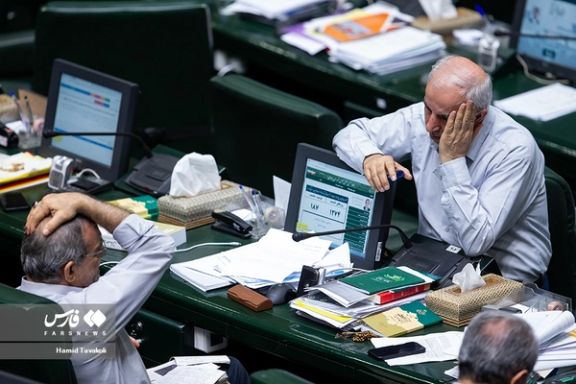
Following a cyber attack on over 600 Iranian government servers, the parliament's voting system broke down during proceedings on Wednesday, MPs resorting to standing and sitting to signify their agreement or disagreement.
The live broadcast of the parliamentary session was also unavailable on the official website due to the malfunctioning of the voting mechanism following Tuesday's cyber attack claimed by the hacktivist group Uprising till Overthrow, closely linked with the Albania-based opposition Mujahideen-e Khalq (MEK) organization.
It is the latest in a series of high level hacking incidents affecting the government and comes on the eve of the country's upcoming elections, scheduled for March 1st, which have witnessed extensive candidate disqualifications and experts expect turnout to be less than 15 percent, a record low for the regime.
Shahriar Heidari, a member of the National Security Commission of the Parliament, highlighted the vulnerability of the country's cyber security infrastructure, saying, "Given that some government systems have been hacked before, and now the parliament has been hacked, it indicates the weakness of the country's cyber security structure."
Leaked documents from the breach include sensitive materials concerning the Supreme National Security Council's strategies to evade sanctions and internal parliamentary documents, such as the list of MPs' salaries which revealed parliamentarians' salaries range from 1.7 to 2.7 billion rials, equivalent to $3200 to $5000.
Meanwhile, Iranian workers are set to receive a government approved average salary increase of 20 percent starting in March, amid an annual inflation rate of around 50 percent. The new minimum monthly wage has been set at 115 million Iranian rials or about 210 US dollars.